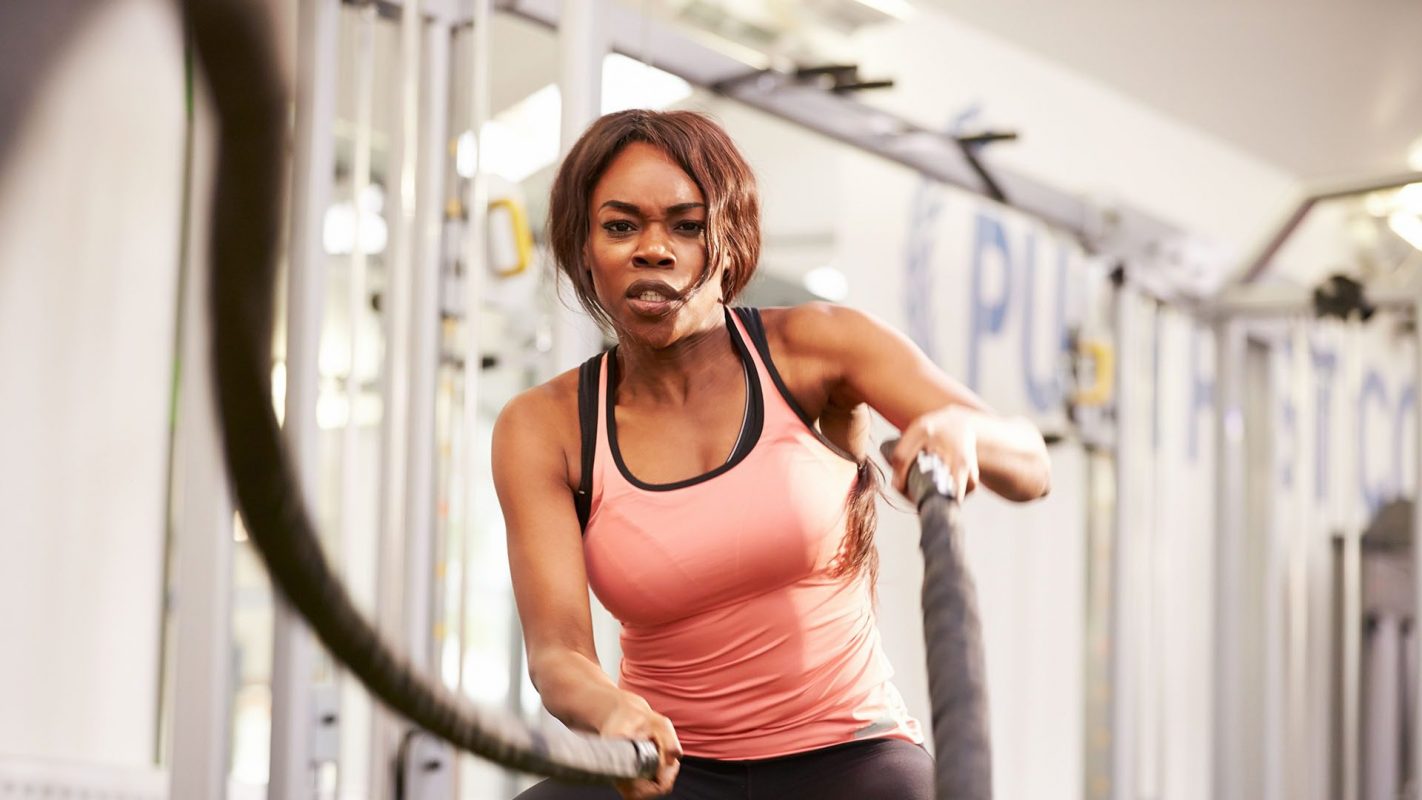When we think of testosterone, we mostly attribute it to men, but did you know it actually plays an incredibly important role in a woman’s health as well? Testosterone is a wonderful hormone that is responsible for so many things such as helping with mood and overall sense of wellbeing, encouraging and increasing energy levels, brain, bone, and heart protection, maintaining muscle mass, and encouraging a healthy libido.
Typically, a women’s natural level peaks at age 25 and then starts declining up until menopause when it then levels out. Additional factors can affect testosterone levels, including pregnancy, which can permanently diminish levels by 10-15%. It’s no wonder that women start to feel this decline by their mid to late 30’s and continue to notice this reduction in testosterone’s benefits as they age. To top it all off, with the drop of progesterone by the age of 40, women start to become more estrogen dominant, which further contributes to diminished levels.
So, how exactly does testosterone affect a woman’s body?
Testosterone and Brain Health

Testosterone has a positive effect on the brain, including improved mood, sense of wellbeing, and energy levels. It has been shown to encourage developmental connections and increase cell growth in the brain. It does this by increasing dopamine on primary neurotransmitters, in turn improving cognitive function, self-confidence, and assertiveness.
Testosterone and Bone Density
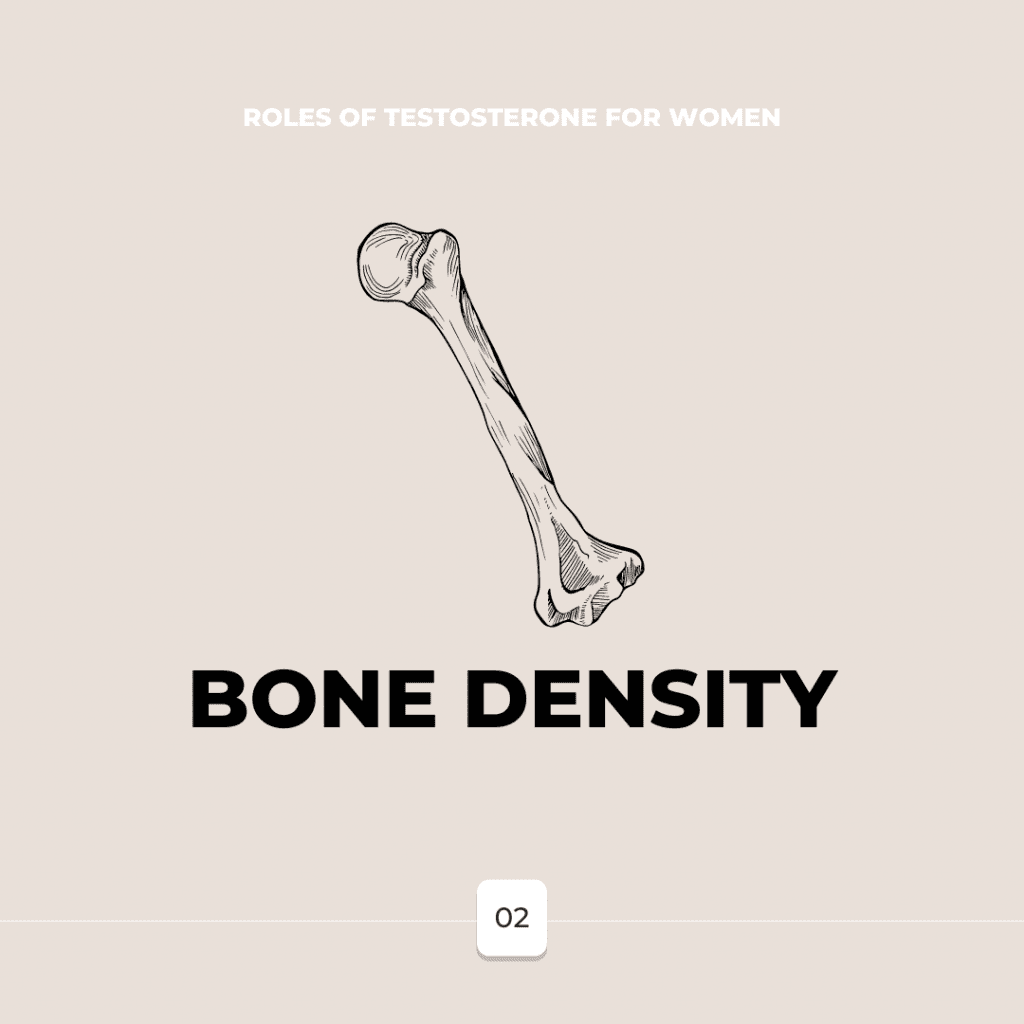
Bone density is made up of osteoblasts, or bone cells, which have receptors for testosterone. Higher levels can increase osteoblast activity, leading to bone development. The lower the testosterone levels in a woman, the weaker her bones will become, which can lead to injury, including fractures. The combination of testosterone and estrogen can even further assist in building and maintaining our bone density health.
Testosterone and Heart Protection
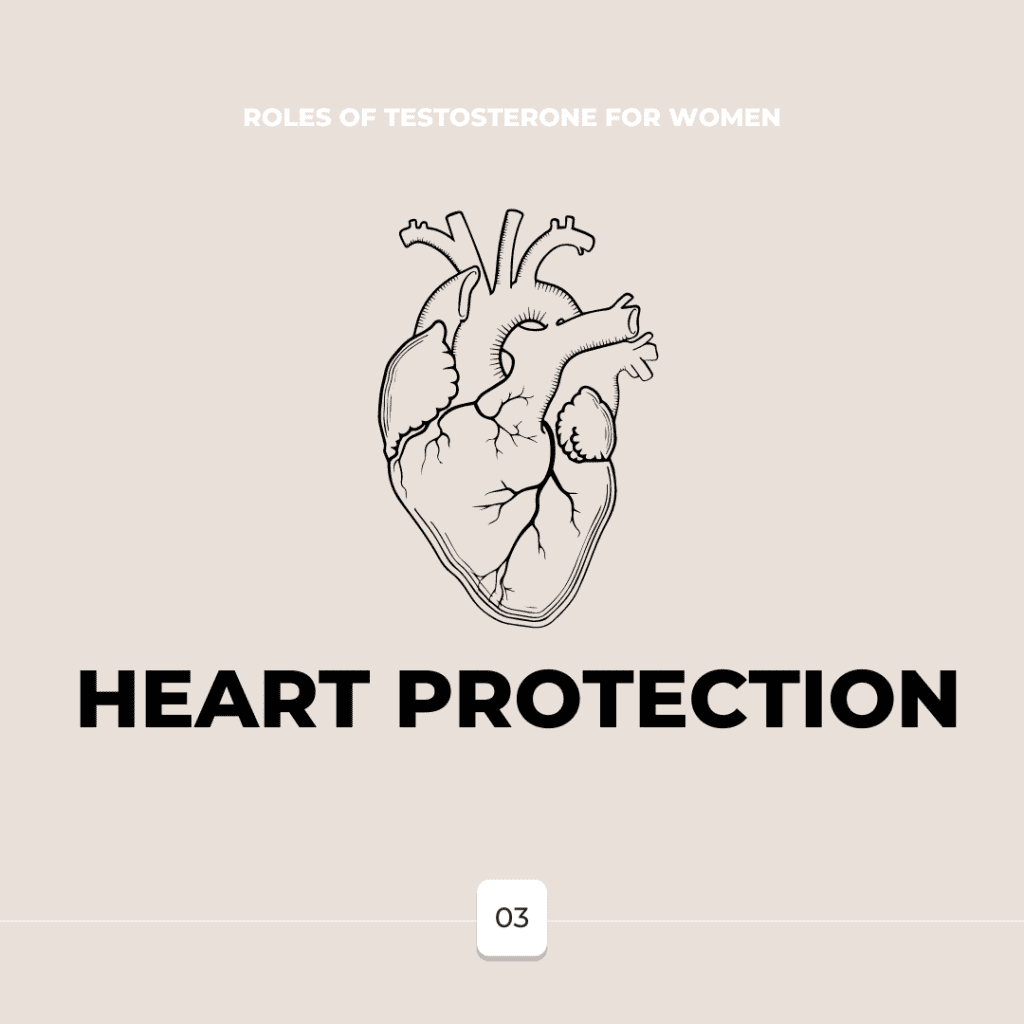
Heart disease is the leading cause of death in women, killing ten times more women each year than breast cancer. Women can be protected from this statistic with optimal testosterone levels, which assist with controlling blood pressure levels, preventing arteries from hardening, and helping with blood flow by preserving heart muscles.
Testosterone and Muscle Mass
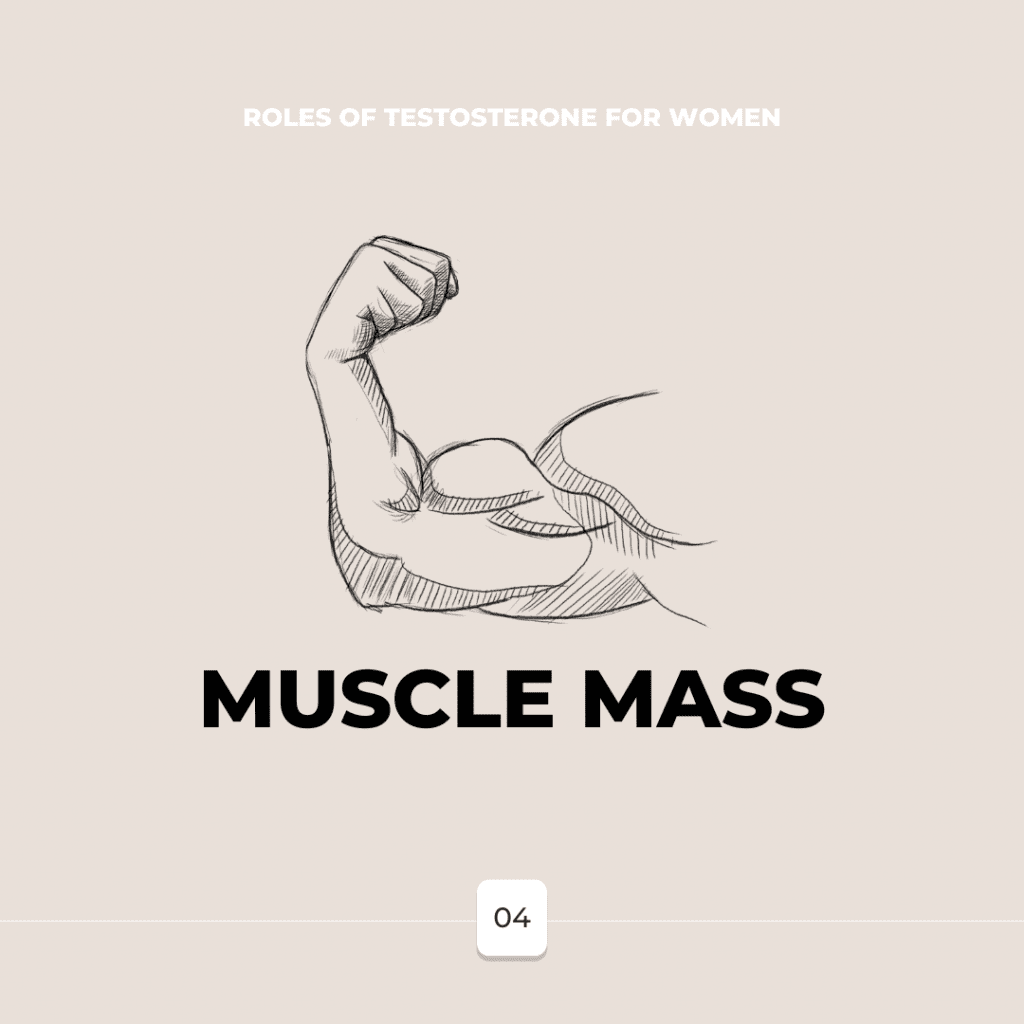
As we age, we become prone to a condition known as sarcopenia, which causes the atrophy and loss of muscle mass, resulting in weakened muscle ability and mobility. This increased risk of falling can lead to trauma, fractures, disability, or even death. Testosterone preserves our muscles from wasting away and even encourages our metabolic rate. More muscle mass also diminishes fat deposits on the body which can become excessive estrogens in the body.
Testosterone and Libido
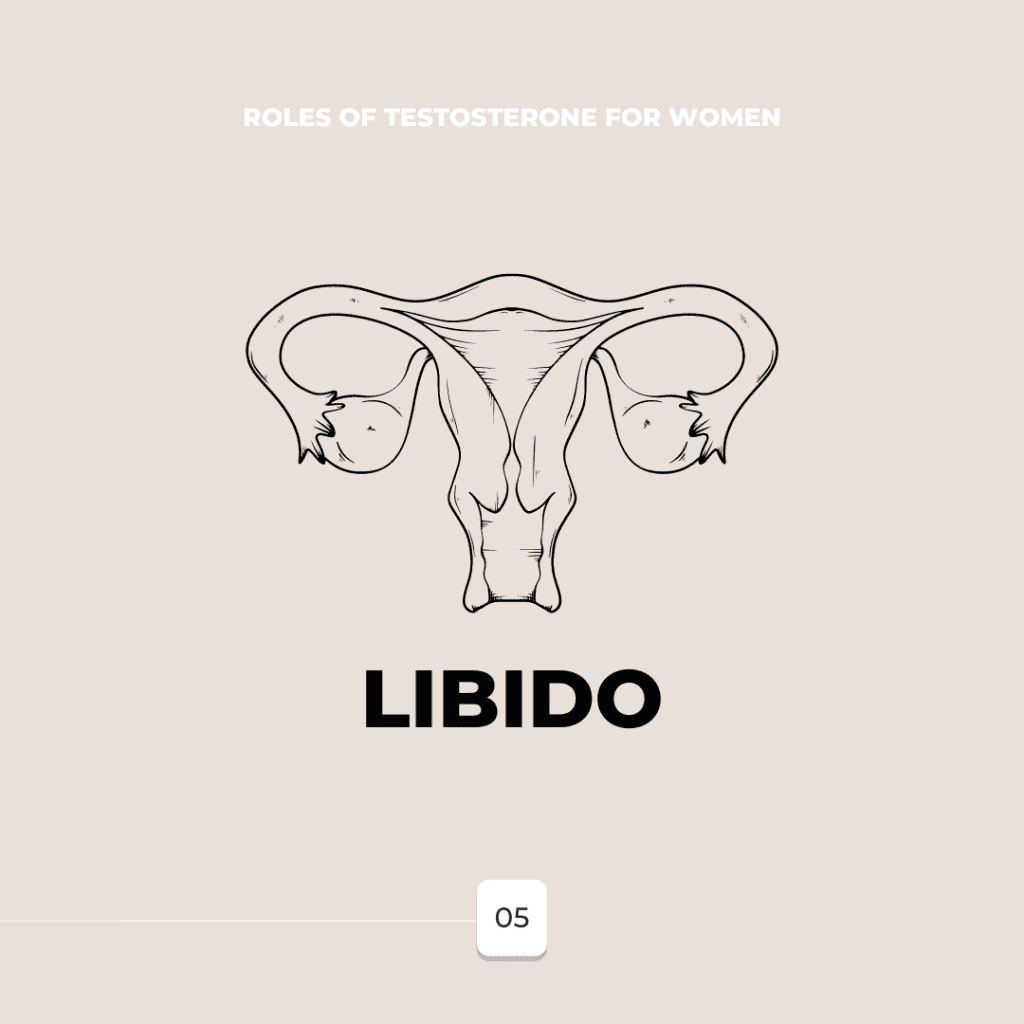
At some point in their lives, most women will experience a decrease in desire or interest for intimacy and low libido. It is also important to understand what causes low libido in women. This is only expedited with mounting estrogens dominating the body and natural testosterone stores becoming diminished. This can lead to overall fatigue, flattened mood, and lack of energy. Since it has positive impacts on our brain connectivity, it directly influences our sexual functioning at a core and central level (sexual desire, fantasy, thoughts, etc.). It also increases blood flow to our genitals which assists with arousal, sensation, and orgasm.
All in all, testosterone is a remarkable and important hormone for both sexes. Women may only have 1/10th the amount of testosterone as men, but it plays a huge role in protecting them from heart disease, maintaining healthy bones and muscle mass, and keeping them feeling like their best selves for years to come!
Learn more about the role of testosterone and other important hormones in your body – visit True Balance Medical Spa online, give us a call, or visit one of our clinics.
Sherwood Park – 780.464.4506 | St. Albert – 587.290.2290 | Spruce Grove – 780.962.3262





